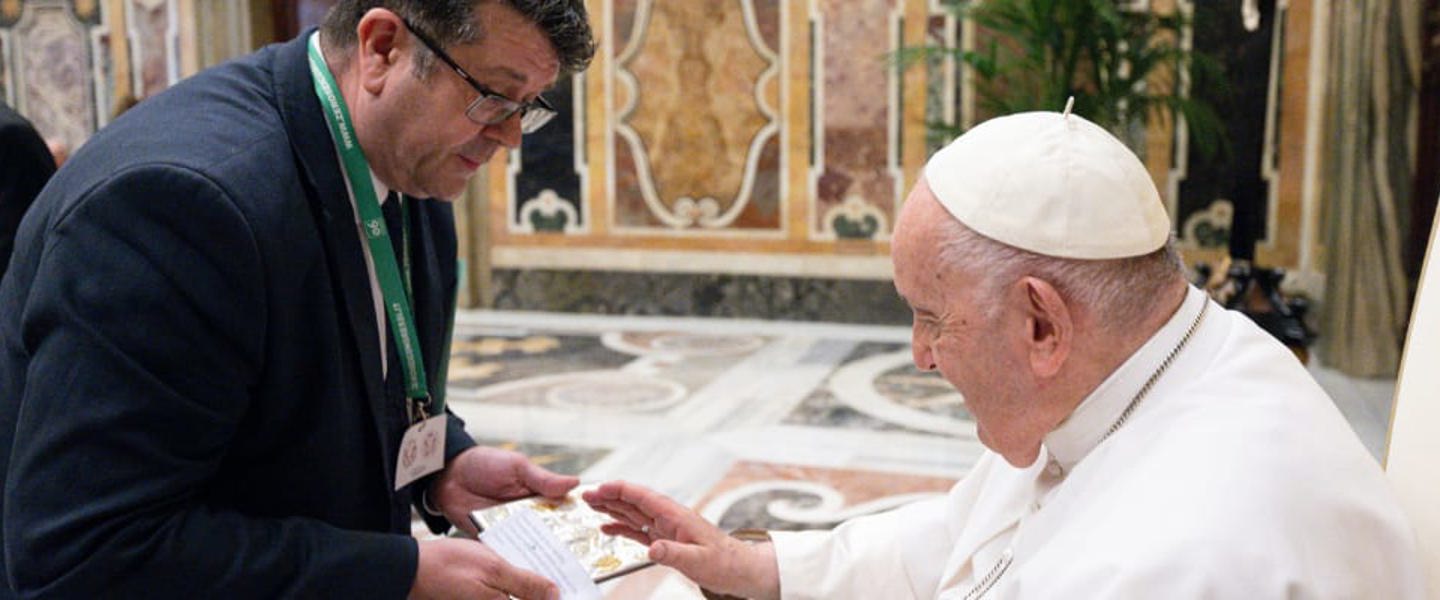01/09/2025
Fresh Start
Guest contribution: Popes and prisons
When Pope Francis died on Easter Monday, a flood of tributes, commentaries and obituaries were published. Many of them referred to one of the most significant early visits of his pontificate: when he decided to take the traditional ritual of washing people’s feet on Maundy Thursday – to commemorate Christ washing the feet of his disciples – out of St Peter’s Basilica and into a youth prison, where he tenderly washed the feet of 12 prisoners. It was a gesture of solidarity that he had also made in Argentina, commemorating Maundy Thursday in hospitals, prisons and homes for the elderly. This time, kneeling before them, he washed the feet of Christians, Muslims and atheists, young and old, men and women. It was the first time that a Pope had been seen washing the feet of women.
Later, that same Maundy Thursday, during the Chrism Mass back in St Peter’s Basilica, he spoke to more than a thousand priests, bishops and cardinals, using his homily to remind them that a priest who does not live alongside his people, “misses out on the best of our people, on what can stir the depths of his priestly heart”. This is why, he said, “some priests grow dissatisfied, lose heart and become in a sense collectors of antiquities or novelties – instead of being shepherds living with ‘the smell of the sheep’”.
While Pope Francis’ Maundy Thursday gesture caused many headlines, it was not the first time that a pontiff had ventured into a prison.
Two months after his election, Pope John XXIII paid a surprise visit to Rome’s Regina Coeli prison during his first Christmas as pope in 1958. “I know it’s tough”, he said to the prisoners. “One of my cousins ended up here”.
One prisoner broke through the security barrier, running and throwing himself on his knees at the Pope’s feet, asking, “Holy Father, I am a delinquent, is there also hope for me?” to which the Pope replied, “There is hope for all, there is also hope for you.”
John XXIII was not the only pope to have known what is was like to have a family member behind bars. When Paul VI visited Regina Coeli, celebrating Mass for 1,200 prisoners in 1964, he broke down in tears, and he told them the devastation that his own family experienced when an uncle of his had been jailed for years.
He said to the prisoners: “I have come to kindle in each of you a flame, if it is gone out… you still have potentialities of good, great new potentialities, perhaps greater than ever by your very misfortune”.
While the visit of Paul VI had personal connotations for him, no visit to a prison could have been more personal than that of John Paul II in 1983 when he visited his would-be assassin, Mehmet Ali Agca. The two met two years after Agca was arrested for shooting John Paul in St Peter’s Square. It was a private encounter but the Pope said publicly on more than one occasion that he had forgiven Agca, who was later released and extradited.
Then, in the Millennium and Jubilee Year of 2000, John Paul celebrated Mass at the Regina Coeli prison in Rome, talking in his homily of the spiritual liberation that Christ offers. And when Benedict XVI visited prisoners at Rebibbia Prison in Rome in 2011, he took a more practical approach, highlighting the problem of overcrowding at the jail.
Like John Paul, Benedict too, had personal experience of being a victim of crime, and in December 2012 he visited his former butler, Paolo Gabriele, jailed for stealing the Pope’s documents, and told him he was forgiven. Gabriele had been sentenced to 18 months in prison but following the papal pardon, he was released after two months.
So for all modern-day popes, visiting prisoners has become a tradition, but Pope Francis did it throughout his pontificate, even on Maundy Thursday this year, when he was unwell, and just four days before he died. On that final visit, he was too ill to celebrate Mass or wash feet, “but I can and I want to be close to you”, he told the Regina Coeli inmates.
To the end, he remembered Christ’s words: “I was in prison and you visited me”.
A guest contribution by Catherine Peppinster
Catherine Pepinster is a journalist, including a former editor of the Tablet, broadcaster and the author of a number of books, including The Keys and the Kingdom: The British and the Papacy from John Paul II to Francis. She regularly appears on BBC Radio 4.

